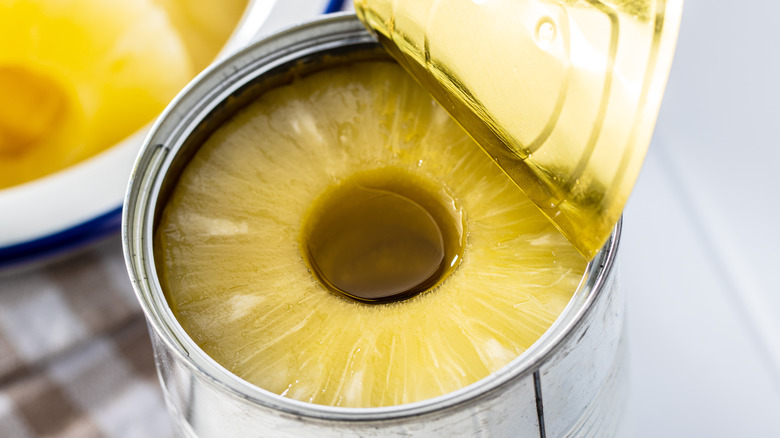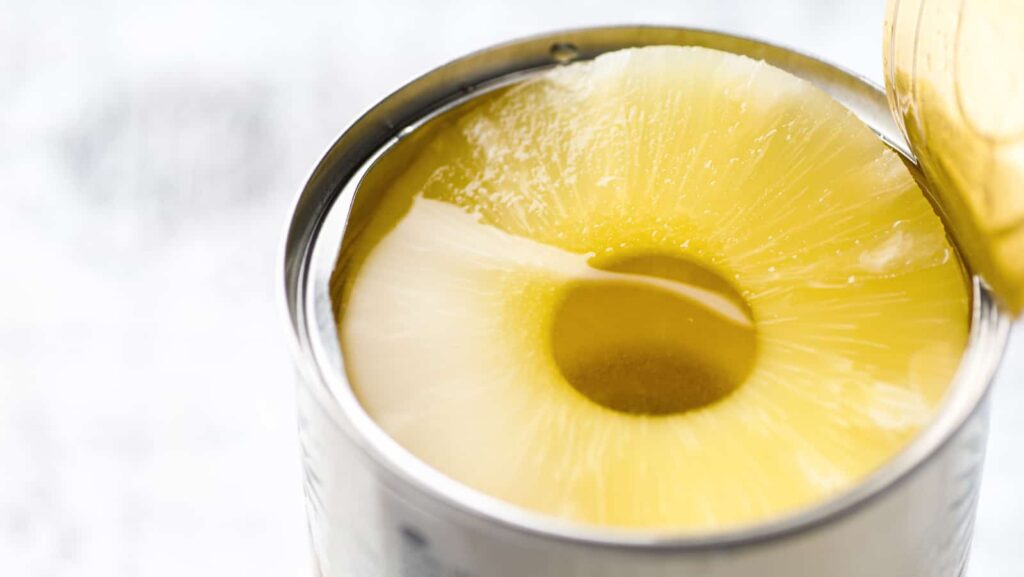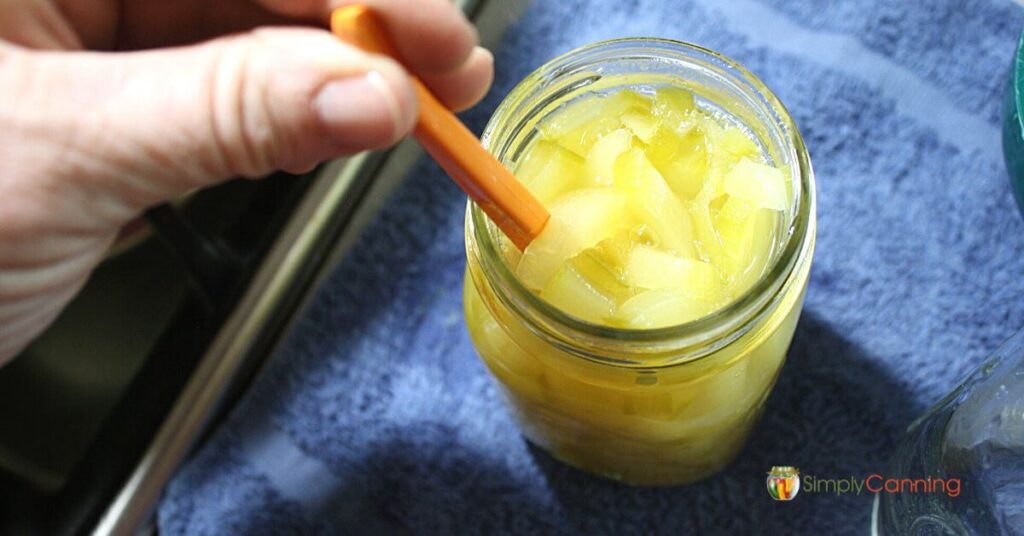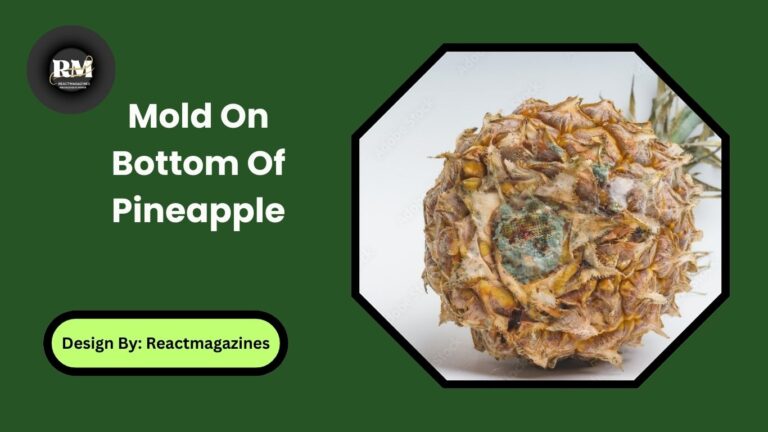Does Canned Pineapple Juice Go Bad – Expert Guide!
Yes, canned pineapple juice can go bad. Unopened cans last 12–18 months, but once opened, juice lasts only 5–7 days refrigerated. Sour smell, off taste, or discoloration indicate spoilage.
Pineapple juice is a refreshing tropical drink enjoyed worldwide, and many people prefer the convenience of canned pineapple juice. But like all foods and beverages, canned juice doesn’t last forever. If you’ve ever found an old can in your pantry or wondered whether that opened juice in your fridge is still safe to drink, you’re not alone.
In this detailed guide, we’ll explore does canned pineapple juice goes bad, its shelf life, storage tips, spoilage signs, and safety concerns.
How Long Does Canned Pineapple Juice Last?
The canned pineapple juice shelf life depends on whether the can is unopened or opened.
- Unopened Cans: Properly stored, unopened canned pineapple juice can last 12–18 months past its printed expiration date. Because the juice is pasteurized and sealed, it is safe as long as the can is not damaged or leaking.
- Opened Cans: Once opened, canned pineapple juice lasts only 5–7 days when refrigerated in a clean, airtight container. Leaving it out at room temperature can cause spoilage within hours.
So, the answer to “how long does pineapple juice last once opened” is that about a week in the fridge always tastes and smells before drinking.
Canned Pineapple Juice Expiration Dates

Most cans have a “best by” or “use by” date, but this is about quality, not strict safety. Canned juice doesn’t instantly spoil after this date but may lose flavor and freshness.
Key Points:
- Best by date = peak flavor and quality.
- Expired but unopened = often still safe, if stored properly and no spoilage signs.
- Expired and opened = risky, discard immediately.
Unopened vs Opened Canned Pineapple Juice
Understanding the difference between unopened vs opened canned pineapple juice is essential:
- Unopened: Can remain safe for over a year when stored in a cool, dry place.
- Opened: Becomes perishable. Exposure to air leads to oxidation in pineapple juice, reducing taste and increasing spoilage risk.
Signs Canned Pineapple Juice Has Spoiled
So, how to tell if pineapple juice is bad? Here are the most common canned fruit juice spoilage signs:
- Sour Smell: Fresh pineapple juice has a sweet, tropical scent. Spoiled juice smells sour, yeasty, or fermented.
- Strange Taste: A sharp, tangy, or bitter taste indicates spoilage.
- Color Change: Pineapple juice turning brown or cloudy may mean oxidation or bacteria growth.
- Gas Buildup: Swollen, bulging, or leaking cans suggest fermentation or contamination never consume these.
- Mold Growth: Any mold floating on the surface means the juice must be discarded.
If you notice any of these, it’s best not to risk drinking it.
Is Canned Pineapple Juice Safe to Drink?
Generally, canned pineapple juice is safe to drink if:
- The can is not damaged or rusted.
- It is within its shelf life.
- It has been refrigerated properly after opening.
But can expired canned juice make you sick? Yes, drinking spoiled juice can cause stomach pain, nausea, diarrhea, or even food poisoning due to bacteria growth in canned pineapple juice. Always check before consuming.
Refrigerating Canned Pineapple Juice After Opening

One of the most important canned pineapple juice storage tips is refrigeration:
- Always pour leftover juice into a glass or plastic airtight container, never store it in the opened can.
- Keep it refrigerated at 40°F (4°C) or below.
- Consume within 5–7 days.
Storing it properly prevents oxidation and slows bacteria growth, making the juice safer and fresher for longer.
Room Temperature vs Refrigerated Canned Pineapple Juice
- Room Temperature: Safe only if the can is sealed and unopened. Once opened, bacteria multiply quickly, making it unsafe within hours.
- Refrigerated: Essential after opening. Proper cold storage preserves taste, prevents fermentation, and maintains safety.
Can Canned Pineapple Juice Ferment?
Yes, under the wrong conditions, canned pineapple juice can ferment due to natural sugars. Signs include:
- Fizzy or carbonated texture.
- Alcohol like smell.
- Gas buildup in containers.
Fermented juice is unsafe for consumption and should be thrown away.
Best Way to Preserve Canned Pineapple Juice

To extend the life of canned pineapple juice, follow these storage guidelines for canned juices:
- Store unopened cans in a cool, dark pantry away from sunlight.
- After opening, transfer to an airtight glass container.
- Always refrigerate immediately.
- Freeze small portions in ice cube trays for long term use in smoothies or recipes.
Pasteurized Pineapple Juice vs Fresh Juice
Most canned pineapple juice is pasteurized, meaning harmful bacteria are destroyed during processing. This gives it a longer shelf stability compared to fresh juice. However, once opened, pasteurized juice still spoils quickly. Fresh juice offers brighter flavor but a much shorter shelf life usually 24–72 hours refrigerated.
Health Risks of Expired Pineapple Juice
Drinking spoiled juice is not worth the risk. Health risks of expired pineapple juice include:
- Food poisoning.
- Upset stomach.
- Bacterial or mold contamination.
If in doubt, throw it out.
FAQs:
1. How long can unopened canned pineapple juice last?
Unopened canned pineapple juice lasts up to 12–18 months when stored in a cool, dry place. Even after the printed date, it may still be safe if the can is undamaged and sealed.
2. What are clear signs canned pineapple juice is spoiled?
Spoiled juice may smell sour, taste bitter, appear brown or cloudy, or have gas buildup in the can. Any swelling, leaks, or mold growth are strong indicators that the juice should be discarded.
3. Can expired canned pineapple juice make you sick?
Yes, consuming expired or spoiled juice can lead to food poisoning, causing nausea, vomiting, or diarrhea. Bacterial growth and fermentation make it unsafe, so always check for signs of spoilage before drinking.
4. How should canned pineapple juice be stored after opening?
After opening, transfer the juice from the can into a clean, airtight glass or plastic container. Refrigerate immediately and consume within 5–7 days for freshness, flavor, and food safety.
5. Can you freeze leftover canned pineapple juice?
Yes, freezing is an excellent way to extend shelf life. Pour juice into ice cube trays or freezer safe containers. Frozen juice can last several months and is perfect for smoothies, desserts, or cocktails.
Conclusion
Canned pineapple juice is convenient, but like all beverages, it has a limited shelf life. Unopened cans can last over a year, but once opened, juice should be refrigerated and consumed within a week. Spoilage signs like sour smell, discoloration, or mold mean it’s unsafe to drink. Proper storage, refrigeration, and freezing leftovers can extend usability and maintain flavor. To stay safe and enjoy the tropical taste, always check freshness before drinking. When uncertain, remember better safe than sorry.






